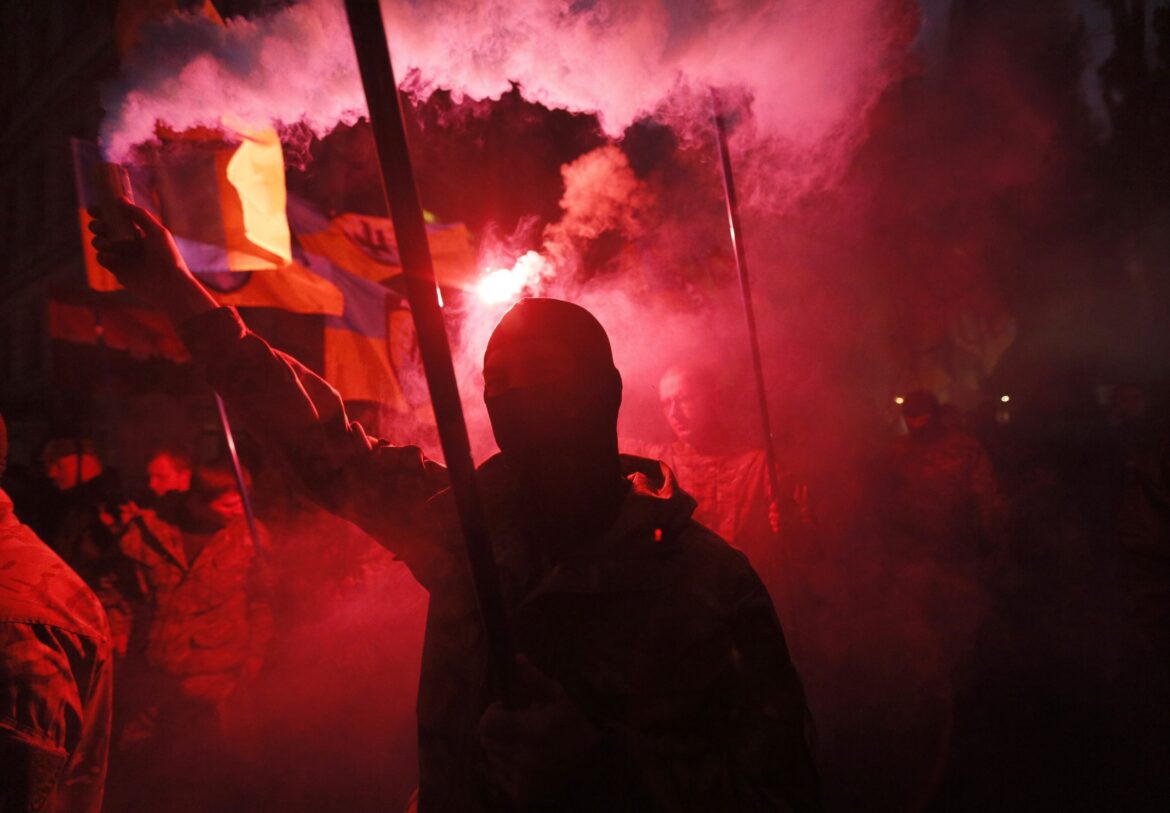Far-right extremism emerges as a multifaceted and insidious phenomenon, characterized by its deep-rooted ideologies that often intertwine politics and religion in a manner that subverts the very tenets of compassion and community. This discourse shall delve into the essence of far-right extremism, exploring its political ramifications, religious underpinnings, and the process of radicalization from a Christian perspective.
In the contemporary socio-political landscape, far-right extremism can be envisaged as a tempestuous storm, one that gathers strength from a combination of societal discontent and historical grievances. Political factions within this realm tend to espouse nativism, xenophobia, and anti-globalization sentiments, which together create a potent cocktail of fear and mistrust. The allure of such ideologies often lies in their promise to restore a perceived lost glory, fostering an environment ripe for radicalization. Here, the individual grapples with existential uncertainty—caught in the crosscurrents of modernity and tradition.
The interplay between politics and religion becomes particularly poignant when examining far-right extremism. Many adherents seek solace in a warped interpretation of Christian doctrine, which they wield like a sword against perceived enemies. It transforms the sacred into a tool of division, where the teachings of Christ—embodied in love, forgiveness, and inclusivity—are subverted to justify exclusion and hostility. Such a juxtaposition paints a disturbing picture, one where faith is co-opted for political gain.
Radicalization often acts as a gradual drift into the murky waters of extremism, akin to a river eroding the banks of a peaceful valley. It begins with discontent—be it economic, social, or political—fueling a longing for belonging and identity. As individuals seek refuge in communities that resonate with their frustrations, they may encounter ideologies that promise simple solutions to complex problems. Here, they are seduced by the siren song of a world divided into ‘us’ versus ‘them,’ thus paving the way for radicalization.
The theological underpinnings of this radicalization further complicate the issue. Christian far-right extremists often latch onto certain interpretations of scripture that endorse racial supremacy or the demonization of outsiders. This misappropriation of religious texts not only distorts the original messages but also fosters an environment where hate can flourish under the guise of divine mandate. Notably, these interpretations create a sense of divine purpose among followers, as if they are both the warriors and the prophets in a modern crusade.
Moreover, the concept of a ‘moral economy’ plays a pivotal role in fortifying the ideology of far-right extremism. Adherents often believe that their moral values—representing a purportedly pure version of Christianity—are under siege. In their view, this leads to the emergence of a collective identity that must defend itself against perceived threats. In this context, the church ceases to be an institution of peace and becomes a bastion for radical ideas, morphing into a citadel where animosity and fervor become the guiding principles.
The tragic irony lies in the fact that those who espouse far-right extremism often believe they are safeguarding Christian values. Yet, their actions contradict the very essence of what it means to be a follower of Christ. The teachings of Jesus, as articulated in the Gospels, emphasize love, mercy, and grace toward others—especially the marginalized. This divergence raises profound questions about authentic discipleship and the ethical implications of such radical beliefs.
Furthermore, far-right extremism often finds fertile ground in the anxieties surrounding globalization. As societies grapple with issues such as immigration and cultural diversity, many individuals experience a profound sense of loss. In these realms of uncertainty, extremist ideologies flourish, offering a semblance of protection against the perceived threats of change. This allure is insidious; it preys upon fears, twisting them into narratives that glorify a bygone era while vilifying the present.
In contemplating the response of Christian communities, it becomes imperative to embrace a posture of proactive engagement rather than passive observation. By reaffirming the core tenets of Christianity—love, compassion, and fellowship—believers have the opportunity to counteract the narratives propagated by far-right extremism. This response must include a commitment to fostering dialogues that bridge divides, where faith transcends barriers, and individuals are encouraged to explore the beautiful diversity within the body of Christ.
Finally, as society navigates the multifaceted challenges of far-right extremism, it is essential to recognize that this issue transcends mere political affiliation. It calls for a theological reckoning—a reassessment of what it truly means to follow Christ in a world rife with strife. The Christian witness must stand as a testament to inclusivity, calling individuals out of darkness into light, from division into unity, and from fear into hope.
In conclusion, far-right extremism encapsulates a complex intersection of politics, religion, and radicalization that necessitates a deep and thoughtful examination. As adherents grapple with their identities and beliefs, society at large must strive toward a more profound understanding of these dynamics. The path forward demands vigilance and courage, urging us to stay anchored in the principles of love and integrity that lie at the heart of the Christian faith.



